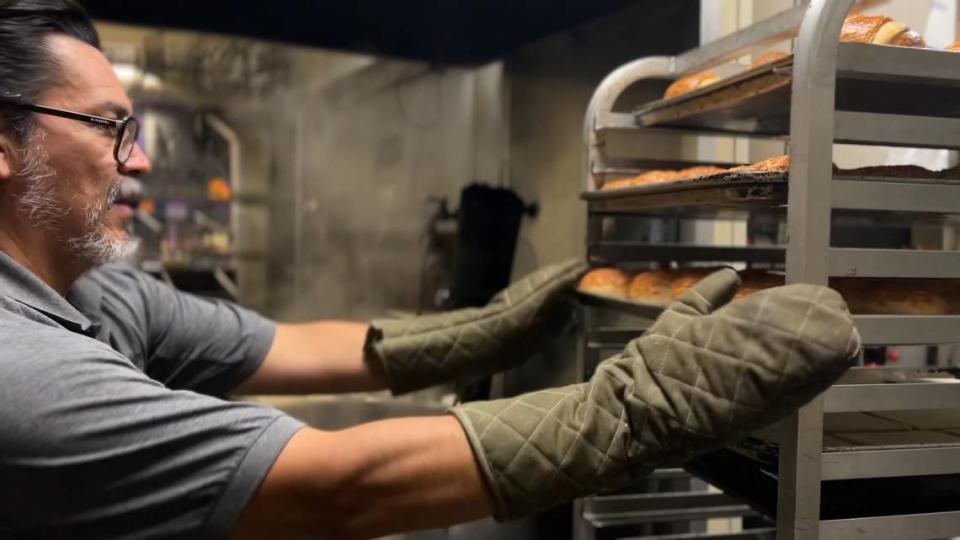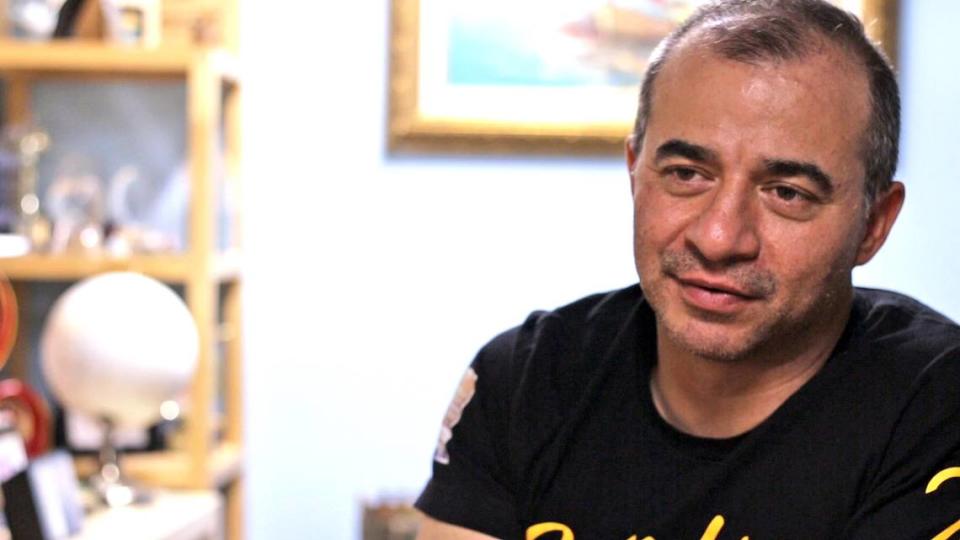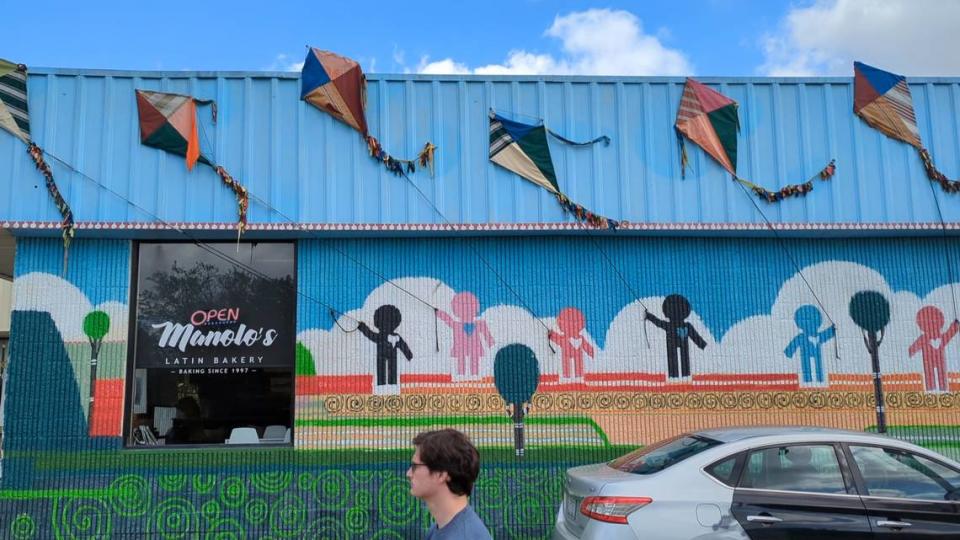Bagels, croissants and tres leches: Immigrants are behind these Charlotte bakeries
My earliest memory of my family’s bakery is waking up at 5 in the morning to deliver bagels to the businesses my parents catered to. I was about 5 years old. My mother was carrying me, and I remember falling asleep with my pillow and a blanket in the back seat of a GMC Yukon. The onion flakes, garlic and poppy and sesame seeds in the everything bagels overpowered the aroma of all the others.
My experience is not unique. Immigrants own 29% of restaurants and hotels in the United States, double the rate for all businesses. A quick scan of Yelp shows 120 bakeries in the Charlotte area. Many of them are owned by immigrant families, and I bet every single one has a story to tell.
When an assignment came up in one of my reporting classes at Queens University to tell some of these stories, I seized the opportunity, along with 10 other students from Bosnia-Herzegovina, Germany, Mexico, Myanmar, South Africa, Spain, Sweden and the United States.
A Mexican bakes Jewish bread from Poland
Census Bureau data indicates that more than 15% of Charlotte residents were born outside the United States, and almost 51,000 come from Mexico, the largest group. My parents immigrated from Mexico City to Easley, South Carolina, in the 1990s, then made their way to Charlotte. They bought Manhattan Bagel in the Arboretum shopping center 25 years ago.
Growing up in Mexico City in the 1970s, my dad, Marcos Casarrubias, never ate a bagel. Instead, he grew up eating conchas, a shell-shaped sweet bread. He learned how to make bagels from the previous owner of the franchise, who was an Indian American.
“At the beginning it wasn’t easy, because we are from Mexico City,” he said. “And this is a very Jewish and northern type of bread. So at the beginning, it was a shock in cultures between how a Latin person can make a northern and Jewish bread.”

The food author and founder of Zingerman’s Deli in Ann Arbor, Michigan, Ari Weinzweig, writes that bagels were invented in Jewish communities in Poland in the 15th century. But my father seems to have overcome early perceptions in Charlotte and centuries of bagel heritage.
Manhattan Bagel is just a five-minute drive from Temple Israel and Temple Beth El, and on weekend mornings we sell 160 bagel sandwiches per hour. One of my co-workers is a high school senior who used to come to the store after attending temple on Saturdays. He’s now been making bagels for two years.
“In the beginning, it was mainly people from New York and Jewish people,” my dad told me.
After Yom Kippur, we still take a lot of orders for a bag of a dozen bagels to break the fast. And tastes have expanded over time — we make bagels topped with jalapenos and melted cheddar cheese, and we offer jalapeno salsa cream cheese, too.
The immigrants behind Manolo’s Latin Bakery
“For any culture, not just my culture, any place in the world has bread,” said Manolo Betancur, owner of Manolo’s Latin Bakery on Central Avenue. “Bread fills bellies. If your belly is full, your spirit is alive. If you have an empty stomach, then your spirit is gonna break. So if bread is in your belly, you have faith.”
A bakery founded by Mexicans attracts a significant number of Mexican customers, said Betancur, who is from Colombia and took over the store in 2011. These days, the most popular product at Manolo’s Latin Bakery is tres leches cake, which originated in Nicaragua and Mexico. The bakery’s white bread is similar to a common African bread, so they have many African customers, too.

[READ MORE: This longtime Charlotte baker has been named ‘Bread Hero’ of the U.S.A.]
“Some of our cakes are very similar to something from the Middle East,” Betancur said. “And the donuts are universal. So I get a lot of American customers, as well.”
Immigrant bakers are braver than you might think, he said.
“America should feel proud because we are receiving the bravest people from every country around the world,” Betancur said. “Because just the bravest people are the ones who are capable of leaving their loved ones, to leave their families and to leave their countries in order to start a new life.”

Tous Les Jours is French, but it’s also Korean
Tous Les Jours, located near SouthPark and inside the new Super G Mart in Pineville, bakes croissants, macarons, cakes and other products. The business originated in Korea and opened its first U.S. store in 2004, and features Asian flavors like green tea, purple sweet potato and red bean. The bakery also sells coffee, tea, smoothies and a French ham and cheese sandwich called a croque monsieur — “Mr. Crunchy.”
Owner Chulho Chang, who grew up in South Korea, opened Tous Les Jours in Charlotte in summer 2022. Employee Marshall See has been with the bakery since soon after. Early customers were often Asian and Korean, he said, but social media has broadened its appeal.
[READ MORE: The Skillet: How Black Cuisine Became America’s Supper]
“More people are just coming here regardless of ethnicity,” See said. “Diversity is very important because there are many sorts of ethnicities and no one sort of eatery caters to that certain group.”
A family business
Our family and friends run a lot of bakeries and restaurants, and equipment, techniques, recipes and ambiance are regular topics of conversation. During one of these talks, when I was 19, my father gave me one of the biggest compliments I’ve ever received.
“In a worst-case scenario,” he told me, knocking on wood, “if something were to happen to me and I’m not able to run the store, I know that with a lot of effort, sweat and dedication, you are the one of my kids that would be able to not only run the store but probably make it better,” he said. We’ll see.
Nicole Casarrubias is a student in the James L. Knight School of Communication at Queens University of Charlotte, which provides the news service in support of community news. Hannah Axelsson, Hawa Balde Camara, Leshan Curlewis, Maria Duran Colin, Megan Friel, Luca Langohr, Francesca Martinez Ramirez, Adnan Mulahusejnovic, Cord Richardson and Meriam Vancerchin contributed to this story.

